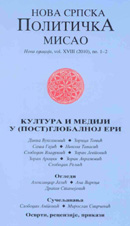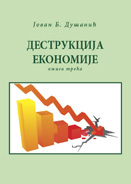| NSPM in English | |||
Obama and The Middle East |
 |
 |
 |
| четвртак, 12. август 2010. | |
|
(Hurriyet, July 23, 2010)
The reported success of the Obama - Netanyahu summit by the mainstream U.S. media overshadowed some recent important developments in the Middle East and the fears that the region is sinking into chaos. In reality, although this tactical meeting with warmed up relations image was very much needed both by Obama and Netanyahu for strategic and political reasons, it does not have any favorable effect on the realities on the ground. One recent important regional development, with possible global repercussions, is the ultimatum delivered by Ahmet Davutoglu, the Turkish Foreign Minister, to Israel about the deadly flotilla attack. Davutoglu gave three options: Israel either apologizes for the killing of the Turkish civilians or allows an impartial international inquiry of the attack. The third option, if Israel doesn’t accept either of the first two, will be the termination of diplomatic relations between the two countries. Frankly, the current Israeli coalition government can neither apologize nor accept the international inquiry option. This is not only because of the fragility of the current coalition government, but also because of how they disinformed the world public about the assault. It would be very difficult, if not impossible, to backtrack after this point. On the other hand, Turkey at this point has no other option left other than cutting diplomatic ties with Israel, if Israel doesn’t accept either of the first two options. Turkish public is still very determined to see an impartial investigation of Israel’s commando raid on the Turkish humanitarian aid ship in international waters. The fact that no other nation has killed any Turkish civilians in republic’s history turned the Israeli assault into a national issue that would be hard to sweep under the rug. The termination of the Turkish - Israeli diplomatic relations will have important repercussions for both Israel and the U.S. interests in the Middle East. For Israel, the only way to feel secure in the region is obviously to make peace with Arabs, and by losing Turkey, a regional superpower that is well-respected in the Muslim world, Israel will be losing its single most important friend and ally in the region that is well capable of mediating peace with the Arab world. Turkey’s role in the region is not only limited to Arab Israeli peace mediation. A democratic Turkey that fills the power vacuum in the Middle East, after the West’s loss of significant credibility in the region, will not only curb the Iranian influence, but also minimize the spread of radicalism in the region. On the other hand, the current conflict with Israel is perceived as a conflict with the U.S. both in Turkey and in the Muslim world, because of America’s unconditional support and protection for Israel. To be more precise, the fact that the U.S. watered down the UN Security Council condemnation statement for Israel and that it has blocked the demands for an impartial international inquiry into Israel’s assault on the Turkish humanitarian ship make many around the world see America as the collaborator in Israel’s unlawful action. Consequently, it wouldn’t be surprising to see the termination of the Turkish - Israeli diplomatic relations tinting the image of the U.S. to a new low in the Middle East. Another important regional development is the recent U.S. and Israeli military buildup in the Persian Gulf with the arrival of the additional armada of several warships, headed by the aircraft carrier Harry Truman, for a possible attack on Iran. Such an attack risks sparking a region-wide chaos and opening a third front in the Middle East for the U.S.. Before addressing “Can the U.S. economy afford one more war?”, we should first try to find the answer of “Would a war solve the problem?”. To answer these two simple questions, we must first acknowledge the basic fact that the current standoff with Iran and Iran’s ambitions to acquire nuclear weapons are unfortunately the consequences of the West’s wrong policies for years and a military confrontation will only worsen the situation. As many analysts agree, a military attack will not prevent Iran from making the bomb, but it will only delay it. Also, such an outside intervention will play straight into the hands of the current regime by increasing its domestic and international support and thereby prolong its time in power. Both the termination of the Turkish Israeli diplomatic relations and a possible military confrontation with Iran will lead to important repercussions in America’s relationship with the Muslim world, ending any success prospects of Obama’s policy to make peace with Islam, and jeopardize the U.S. interests in the whole of Middle East, but mainly in Afghanistan and Iraq. Both U.S. wars in the region have proved that a war cannot be won with military and economic means alone. Therefore, it is important for the U.S. to win the hearts and minds of Muslims to get out of Iraq and Afghanistan smoothly, and to protect its national interests. In this regard, Obama’s presidency has been a unique opportunity, and maybe the last chance, for the U.S. - Muslim world relations, although the first excitement seems to have been lost. The actions of unconditional support for Israel and bullying Iran speak louder in Muslim’s minds than Obama’s words during his historical Cairo speech. Obama’s actions have to comply with his words, because if he fails, it would be very hard to convince the Muslim world again that the Bush-era policies have changed. Avni Dogru is a political analyst and a freelance writer based in New York. |
Од истог аутора
Остали чланци у рубрици
- Playing With Fire in Ukraine
- Kosovo as a res extra commercium and the alchemy of colonization
- The Balkans XX years after NATO aggression: the case of the Republic of Srpska – past, present and future
- Из архиве - Remarks Before the Foreign Affairs Committee of the European Parliament
- Dysfunction in the Balkans - Can the Post-Yugoslav Settlement Survive?
- Serbia’s latest would-be savior is a modernizer, a strongman - or both
- Why the Ukraine Crisis Is the West’s Fault
- The Ghosts of World War I Circle over Ukraine
- Nato's action plan in Ukraine is right out of Dr Strangelove
- Why Yanukovych Said No to Europe

.jpg)








 Obama and The Middle East: The Israel-Turkey-America Triangle
Obama and The Middle East: The Israel-Turkey-America Triangle












